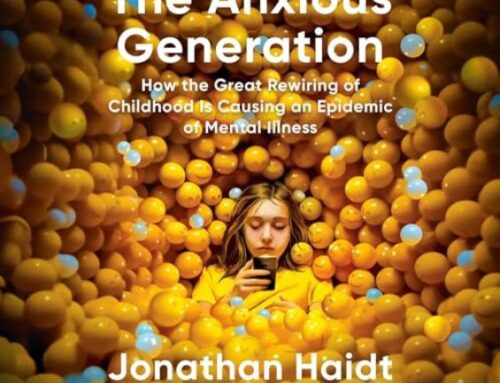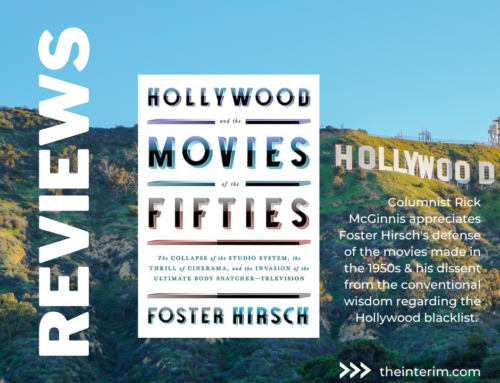 When The Hunger Games opened in theatres this past March it was a sensation, earning over US$150 million in its first weekend and becoming the third highest-grossing opening weekend of all time. Dealers in hindsight told us we shouldn’t have been surprised – 17.5 million copies of the Suzanne Collins’ original young readers sci-fi novel had been sold in the U.S. by its publisher, and over 36 million copies of the trilogy of which The Hunger Games was a part. A sequel was imminent, needless to say, and for a few weeks, media outlets busied themselves with agonizing about what it all meant.
When The Hunger Games opened in theatres this past March it was a sensation, earning over US$150 million in its first weekend and becoming the third highest-grossing opening weekend of all time. Dealers in hindsight told us we shouldn’t have been surprised – 17.5 million copies of the Suzanne Collins’ original young readers sci-fi novel had been sold in the U.S. by its publisher, and over 36 million copies of the trilogy of which The Hunger Games was a part. A sequel was imminent, needless to say, and for a few weeks, media outlets busied themselves with agonizing about what it all meant.
It was a question parents had already been asking with some justification, upon discovering that their children and their friends were avidly reading a book where teenagers kill each other as part of a grisly game orchestrated by a despotic government. The movie version only brought the subject out of the book clubs and online chat forums and into the mainstream, but so far it doesn’t look like anyone has gotten a satisfactory answer.
When I finally saw the film, I had to struggle to stifle an urge to dismiss it as either derivative or absurd, which is probably proof of my irrevocable crossing of the mass media Rubicon. It’s set in that classic future dystopia, where war and other unnamed catastrophes have created Panem, a single oppressive state where the people of twelve outlying districts work to support a corrupt and decadent capital city. Every year, the districts are obliged to send a boy and a girl between 12 and 18 to fight in the blood sport pageant that gives the film its name, where the winner achieves glory and their district gets their food rations upped till the next contest.
The film is directed by Gary Ross with the solemnly hyperbolic touch that migrated from b-movies to studio blockbusters many years ago. Katniss (Jennifer Lawrence) is the sole provider for her widowed mother and little sister in District 12, an Appalachian backwater filled by Ross with the sorts of faces you see in Dorothea Lange’s Great Depression dust bowl portraits. She’s sent to the Hunger Games with Peeta (Josh Hutcherson,) the baker’s son who nurtures a crush on her. They arrive in the Capitol, which has been painstakingly designed to look like Fascist Rome conceived by Karl Lagerfeld and Tim Burton. After a brief interlude of training and media attention, the games begin.
At first glance, there’s nothing original about The Hunger Games. Ed Morrissey, writing on the Hot Air blog, sums up the various influences: Shirley Jackson’s short story “The Lottery,” films like The Running Man and Rollerball, “perhaps a dash of The Handmaid’s Tale and a bit of The Truman Show, and almost every post-apocalyptic dystopian fantasy ever filmed or even contemplated.” A glance at the rest of the trilogy would add Logan’s Run, that high water mark of Me Decade sci-fi, and I could go on, but the fact is that the young audience for the film and the books have heard of few if any of these precedents, and couldn’t care less. Dismissing youth culture for its lack of originality might be comforting to adults, but it merely irritates young people still unsold on the comforts of feeling jaded.
The one that we do know is that no one is sure what sort of film they’ve seen. Conservatives and libertarians have celebrated it for illustrating the dangers of state control and isolated elites, while liberals, including Hunger Games stars Josh Hutcherson and Donald Sutherland, have insisted that it’s a story of the 99 per cent against the 1 per cent. Most parents seem – justifiably – worried about the spectacle of “kids killing kids,” though considering how much more visceral the violence glimpsed elsewhere in movies and videogames has become, the concern seems curiously late and selective.
If you ignore context and politics, the appeal of the film for young people is obvious the moment the games begin, as they play out like an only slightly exaggerated version of high school. There’s the bloody melee on the first day, where everyone jockeys for social position and a serious misstep will doom your prospects; there’s the murderous clique of jock A-types prowling around for victims, and the misfits trying to avoid being noticed until the final bell rings. It all seems obvious, if only to me.
Finally, it’s hard not to hope that the story’s cynicism about the media and entertainment spectacle is resonating with young people raised amidst the din of a relentlessly packaged pop culture that’s re-made politics in its image. During one of the film’s reflective moments, the two protagonists share their fears over the game they’re being forced to play, and Peeta tells Katniss that “I don’t want to be another piece in their game.”
For not the first time, adults concerned about the Hunger Games phenomenon might be distracting themselves with issues like violence and class and generational conflict, and missing the story’s real appeal for young people, as a crude but grand metaphor for the anxiety of inexperience on the threshold of the apparently brutal trials of adult life. To young people, the privileges of adulthood seem to come at too high a cost, while to adults the idealism of the young is overrated, its energy dissipated through lack of focus. We are, as ever, judging each other through a distorting prism, our fears exaggerated by the monstrous distortion it presents to us.




